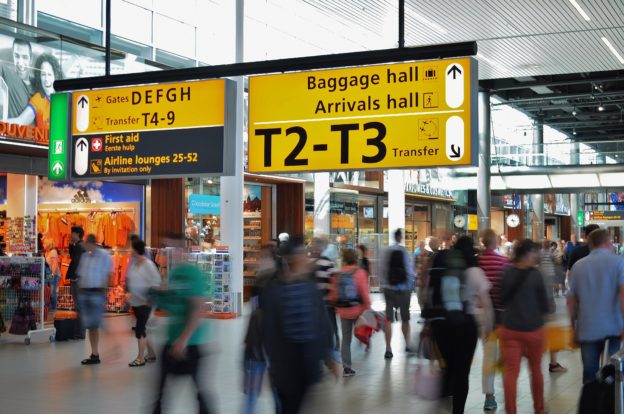5 Tips for Travelling with a Child with Autism
It is the time of year when going on holiday should bring to mind fun and excitement. For many families the thought of travelling with a child with autism can be overwhelming. The following five tips are here to help! We hope they will make travelling a more enjoyable and stress-free experience for both your child and the whole family.
 1. Preparation is key!
1. Preparation is key!
Preparing your child for travelling is key to a more relaxing experience. Start with making a list of all the possible challenges your child may face. Write them down and then think about what you may could bring or do to help. Here’s a few examples;
- Bright lights and loud noises – pack headphones, sunglasses, peaked cap and music.
- Restricted diet – check with airlines about bringing particular food, medication and vitamins through security and customs. Research which shops and restaurants you may pass during your journey and whether they have suitable foods available.
- Waiting in airport queues – contact the airline to check for queue jumping passes or early boarding cards. Some airports have special assistance available for this and other aspects of your journey, for example Belfast International Airport
2. Visuals, visuals and more visuals
Creating visual supports can help individuals on the autism spectrum understand new situations and places. Visuals can be used to break an event into smaller, more manageable steps, to create a calendar of events and to make new places a little more familiar.

- Consider making a social story before setting off on your travels. Think about including the events that will happen while travelling – packing, getting to the airport, waiting in queues, being searched at security, boarding the plane and wearing a seatbelt.
- Take or print out photographs of the events and places you may encounter while travelling. Use them to prepare before you leave and then bring them with you to use in the moment.
- Create mobile versions of visuals you use at home. For example, bring a scaled down PECS book with icons relevant to your journey that can be kept in your hand luggage or car.
3. Practice makes perfect!
Many children with autism find it difficult to cope with unexpected or unplanned events or things that are not part of their usual routine. This can be stressful for the child and other members of the family.

Practicing events before they happen for real could reduce this stress, as well as help you identify potential challenges. Try to find videos of the sorts of journeys you will be taking, practice them using props and visit places nearby that are related to your journey. Start several weeks in advance to give you lots of time to make the events more familiar.
- Search the internet for travelling videos like this one
- Role-play various parts of the journey at home using real or pretend props. You can find great examples online like this buying a train ticket conversation
- Visit the places you will use while travelling and practice shorter, similar journeys. There are some airports, like Edinburgh Airport, that will allow you to bring your child around to see what will happen prior to their actual journey.
 4. Think safe, be safe
4. Think safe, be safe
Make sure you have prepared for all eventualities when it comes to your child’s safety. What happens if they get lost, there’s a fire drill or some other emergency.
- Invest in an ID tag with all relevant information about your child should they get lost.
- If your child is able, practice what to do in the event they can’t find you or another family member, or what to do in an emergency situation (a bit like a fire drill!).
- Make sure you inform relevant staff members of your presence and needs. Request special assistance and perhaps prepare a short list of your child’s needs and challenges. These can even be handed to the people sitting around you.
- Consider a personal locator that will emit an alarm should your child move a certain distance from you and will help you locate them if they get lost.
5.. Keep the experience positive!
 Try to keep each journey as positive an experience for your child as possible. While the thought of travelling with a child with autism can be daunting, keeping a positive mindset will really help. Have clear and realistic expectations – expect some hard days and challenges. Know that you’re prepared for them. Focus in on the good things that happen and the times when your child copes well. Bring lots of high preference items they can have during and following those times. Try to lead by example by keeping yourself calm and relaxed and this will provide a model of how travelling should feel for your child.
Try to keep each journey as positive an experience for your child as possible. While the thought of travelling with a child with autism can be daunting, keeping a positive mindset will really help. Have clear and realistic expectations – expect some hard days and challenges. Know that you’re prepared for them. Focus in on the good things that happen and the times when your child copes well. Bring lots of high preference items they can have during and following those times. Try to lead by example by keeping yourself calm and relaxed and this will provide a model of how travelling should feel for your child.
If you are travelling with a child with autism this summer we hope these tips and strategies help you have a worry free and enjoyable experience. For more holiday related tips see our blog post on planning your holiday with a child with autism and why not add your own tips below!
Feel free to follow us on Facebook to keep up to date with all projects at Sunnyside Children’s Clinic or sign up to receive our free blog posts here.
Happy holidays!

